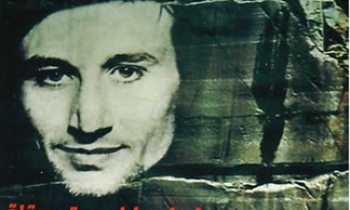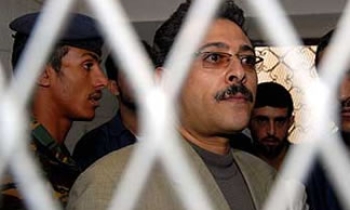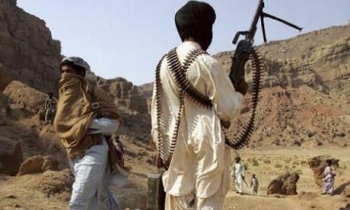Cairo: Seven years after his newspaper was closed down, Majdi Ahmad Hussain, editor-in-chief of Al Shaab, the mouthpiece of Egypt's now-dissolved Islamist Labour Party, sounds downbeat.
"Though we have 14 court rulings in our favour, the government authorities obstinately refuse to comply," Hussain told a recent gathering in the Egyptian Press Syndicate.
The authorities closed Al Shaab in 2000, saying it was dominated by the banned Muslim Brotherhood.
"The government continues to muzzle freedom of the press and shows no respect to the judicial rulings," added Hussain. He lashed out at other opposition groups for absence of "real support" for his paper.
"Al Shaab could have been published in the form of a supplement, a page, or even as an article in newspapers of other opposition parties," Hussain said.
His outburst coincided with the release of a grim report on the freedom of the press in the Arab world. The annual report, published in Cairo by the Federation of Arab Journalists (FAJ), said that abuses of press freedom in Egypt increased in 2006, compared to the pervious year.
Describing 2006 as the worst for freedom of the press in the Arab world, the report said that Egypt was one of the eight Arab countries where journalists were summarily dismissed and one of 11 Arab countries where pressmen were ordered to pay fines.
According to the report, which covered 19 Arab countries, two Egyptian newspapers were suspended last year. The first was Al Jeel (Generation), a mouthpiece of the opposition party Al Jeel, upon a decision from the party chief.
The second was Afaq Arabia (Arab Horizons) due to a dispute, which the report attributed to "indirect security pressure".
The report, based on the results of a survey of heads of press unions in the Arab countries, put the number of Egyptian journalists at 5,600 and publications at 350, including 15 dailies and 68 weeklies.
Deceptive image
"The Egyptian press may be seen at first sight as enjoying a lot of freedom but this is a deceptive impression," said Jamal Fahmi, head of the Egyptian Press Syndicate's Arab Freedom Committee.
"There is a raft of restrictive laws which can be used by the regime at any time to gag the press," he told Gulf News. Fahmi added that the authorities continued to arrest journalists, especially bloggers.
"Apart from some exceptions in Lebanon and Morocco, the Egyptian press may be unique in vociferously criticising the rulers. But you can call this freedom of futile clamour because after all President [Hosni] Mubarak has been in power for 26 years," Fahmi argued. Mubarak, 77, won a fifth sixth-year term in September 2005.
"There will be no real freedom of the press without genuine democratisation, allowing people to freely choose their rulers," said Fahmi.
"And in Egypt, we have started to see signs of change in the form of frequent protests. Of course, this change will not happen overnight."
The FAJ report said the Arab region was the riskiest to journalists in 2006, citing deaths of reporters particularly in Iraq. "Iraq proved to be the world's most dangerous place for the lives of media people," said Saeed Al Sherif, head of the FAJ Freedom Committee.
"Of the 155 journalists and media people killed last year in the world, 70 lost their lives in Iraq alone," he added.
The report also referred to the harm inflicted on press freedoms in the Palestinian territories because of Israeli occupation, and in Lebanon due to a devastating Israeli war last August.
Restrictions on freedom of the Arab press, according to the report, include laws allowing imprisonment, blocking of information, censorship, heavy fines, summons by security forces and dismissal.
The report notes that in 12 of the 19 Arab countries it covered, there are no laws obliging official agencies to provide information to journalists and that foreign ownership of publications is permitted in only the UAE, Tunisia and Iraq.
The survey on the UAE said there were no instances of journalists dismissed, summoned by security agencies, tortured or killed, or newspapers closed or confiscated in 2006.
"The objective of the annual report is to put pressure on Arab governments to allow more freedom of press," said Salah Eddin Hafez, the Federation's Secretary General.
Ebrahim Nafei, FAJ Chairman, disclosed that an observatory on the freedom of the Arab press will be opened by the federation in June in Morocco to "help diversify sources of information" on which the next report would be based.









